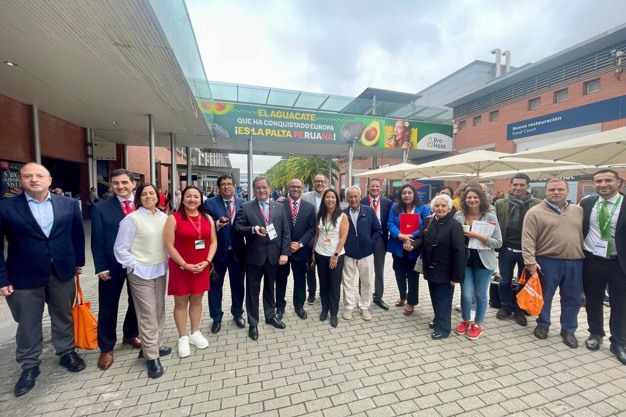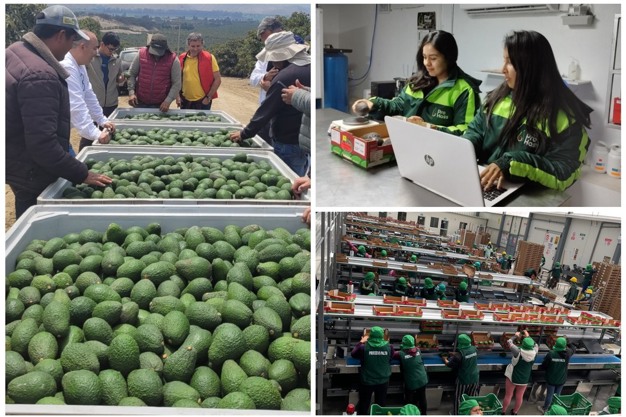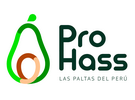"Peru continues to consolidate its position as one of the world's leading avocado exporters. With more than 70,000 hectares devoted to avocado production, Peru is now the world's second largest exporter of this product, only behind Mexico. In Europe, the country accounts for around 45% of avocado consumption and is ahead of competitors such as Israel, which barely covers 15% of this market," says Arturo Medina Castro, general manager of ProHass.
However, the 2024 export season has been particularly challenging for Peru, with a 10% drop in the volume exported compared to the previous year. "We will close 2024 with more than 500,000 tons of avocados exported," says Medina, highlighting that, despite the decrease, prices in Europe have remained stable due to the lower global supply.
60% of Peruvian avocado exports are intended for Europe, while the United States receives 12% and Chile 10%. The country currently has access to 69 markets, but is still looking to reach new destinations, such as Australia, New Zealand, Taiwan, Mexico and Vietnam. "Next year, we hope to gain access to at least three of these markets," says Medina.

Peruvian delegation and ambassador Luis Ibérico at Fruit Attraction 2024.
As an association, ProHass plays a prominent role in the international promotion of Peruvian avocados. Part of its efforts are channelled through the World Avocado Organization (WAO), of which Peru is a founding member and one of the main contributors. In Europe, joint promotions with countries such as South Africa and Israel have really facilitated the positioning of avocados in the market. The association is also working closely with the Peruvian Avocado Commission to strengthen its presence in the United States.
Medina says that ProHass has implemented advanced post-harvest technologies to ensure that the fruit arrives in optimal conditions to distant markets such as China, Japan and Korea. "We are testing new technologies that should allow us to reduce transit times, which would be a great advance for such distant markets," he says.
As for 2025, Medina is optimistic. "Although it is still early to make accurate predictions, we believe we will be able to recover the production levels of 2023, with potential to grow by 15-20%." Despite the impact of the weather in the 2024 season, the Peruvian avocado sector continues to attract new growers, especially small producers, who are receiving technical support to allow them to increase their productivity.

Asked about what is next for the association and the production sector, Medina says: "We have a lot to do. ProHass has strengthened its technical team and carried out various scientific studies with universities in the country. We are facilitating training for our members and small producers; we seek to address specific issues, such as the mitigation of cadmium and the dry matter levels in exported fruit." Much of the progress achieved will be addressed in the Latin American Avocado Congress, organized by ProHass and held in the city of Lima from November 17 to 19 next year, with 1,200 participants from different countries expected to attend.
The impact of agro-business on the Peruvian economy is significant, not only for its contribution in terms of foreign revenue, but also for the generation of employment. "Peruvian agro-business is not just about avocados; we are leaders in the export of blueberries and grapes, and we continue to grow with other products, such as cherries and raspberries," says Medina.
For more information:
Arturo Medina Castro
ProHass
Peru
Tel.: +51 999 965 777
Tel.: +51 1 225 1626
[email protected]
www.prohass.com.pe
